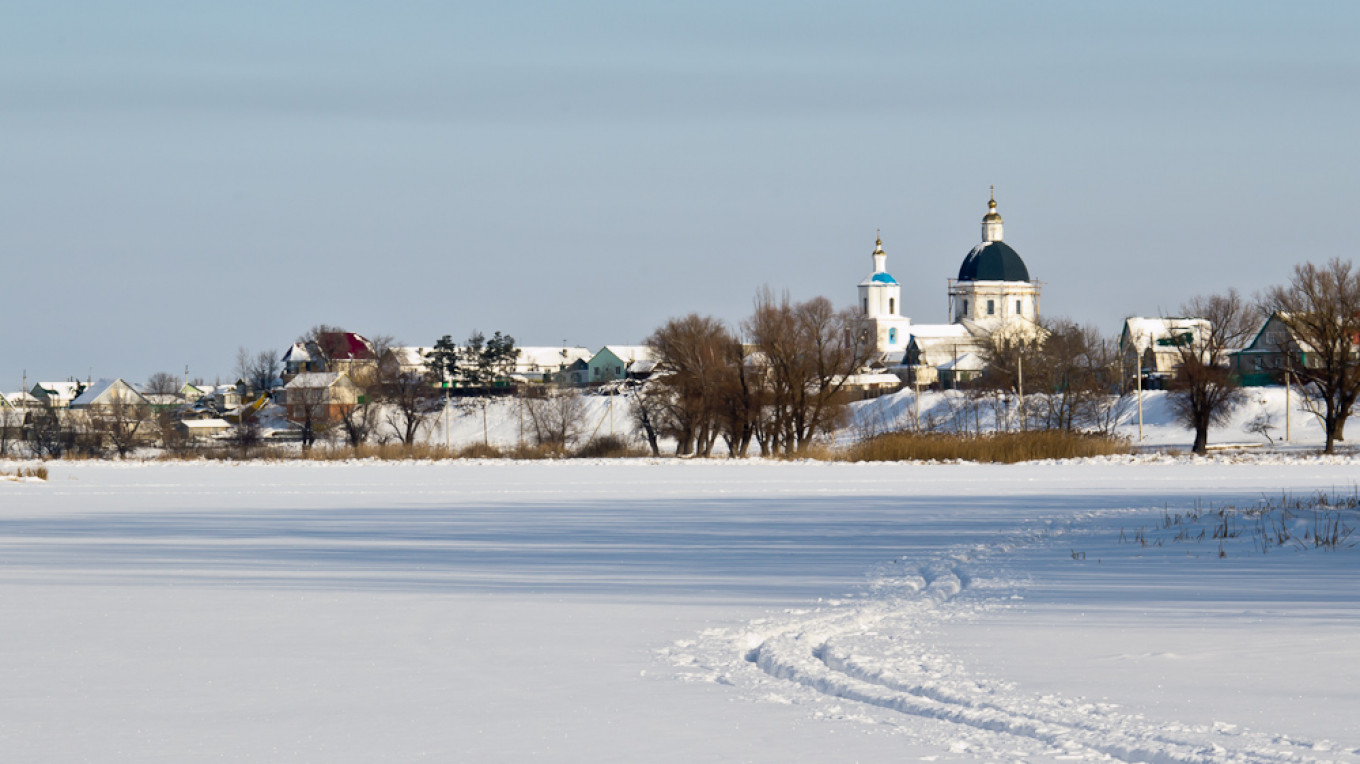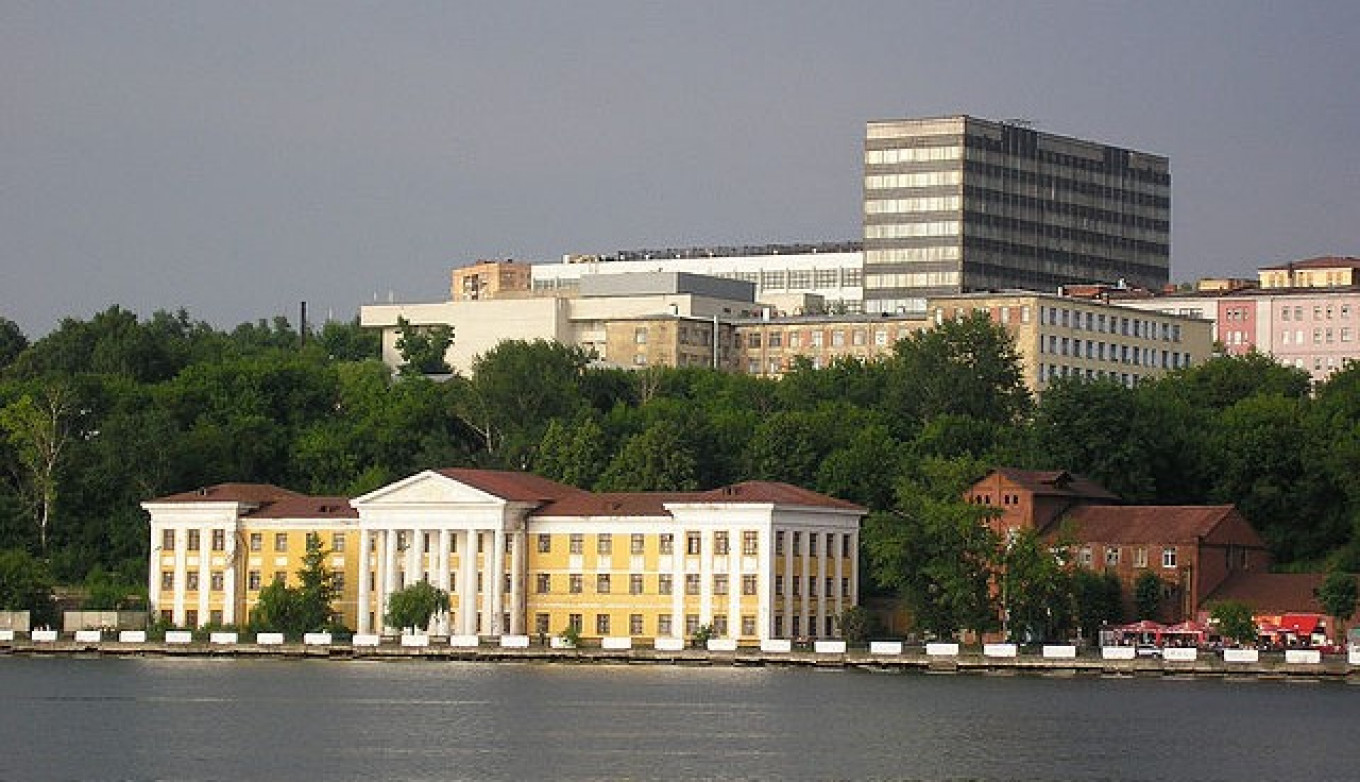Moscow has traditionally been a magnet for the best and brightest. People move to Moscow for career advancement, better opportunities and high salaries. According to the Federal Service for State Statistics (Rosstat), at the end of 2019 the average salary in the capital was 89,129 rubles.
But, of course, that is just the average, and many salaries are considerably less. But all the same, Moscow has more career opportunities than other cities, along with tougher competition. On hh, the country’s main job search site, most of the salaries for jobs in Moscow are 30,000-50,000 rubles. A one-room apartment on the secondary market costs about 7 million rubles and rents for about 30,000 rubles. But larger apartments closer to the center rent for upwards of 70,000 rubles a month. On top of that, Muscovites lay out 5,000-18,000 rubles on utility bills, 15,000–45,000 rubles on food, and 5,000 rubles on transportation every month. Dinner in a cafe costs about 1,000 rubles per person. And besides all this, people need and want to buy clothes and shoes, get haircuts, attend cultural events and take an occasional vacation.
So even though Moscow was the leader in migration growth in 2019, according to the RIA Rating Agency, the expensive living costs make it hard to have a good lifestyle. For a nicer life, people are leaving Moscow for smaller Russian cities or even villages.
Money isn’t everything
When Alexander Darinsky was still in graduate school in physics at Voronezh State University, he got a job offer at the Troitsk Institute for Innovation and Fusion Research (TRINITI) just outside of Moscow. But the salary turned out to be three times less than promised, and Darinsky resigned after two years.
When he began to look for a new job, he discovered that his specialization was not in demand. He took a job at Sony as a support engineer and later became a service center engineer. He was happy with his salary, but he lived far from work and was spending up to three hours a day on his commute. Darinsky wanted to go into business for himself. But after crunching the numbers, he realized that he couldn’t make it work in Moscow, so he decided to go back to Voronezh, where he started producing a wood-concrete hybrid for construction. Today he has a stable and good salary, a lot of free time, a family and a house outside the city. The commute into the city center? Just 15-20 minutes.
Yegor Gureev also moved to Moscow from Taganrog when he got a job offer at a large IT company with offices in the city center. The problem, he soon discovered, was that his work day lasted 14 hours: nine or ten hours at work and another four hours on the road. Yegor was exhausted all the time and usually spent the weekends catching up on sleep.
After three years he decided to leave Moscow. By then he had already married and wanted to spend more time with his family. The couple decided to move to Izhevsk, the hometown of Yegor’s wife. At first he took a huge pay cut — about one tenth of his Moscow salary — but he eventually found a job as a programmer in the largest IT company of the republic, Directum, and now he has a Moscow salary without Moscow expenses.
Yulia Lomanova, a native of Kemerovo, didn’t have a job offer in Moscow, but her boyfriend did and she went with him. Her boyfriend’s sister, who had been living in the capital for about ten years, helped them find an apartment and got Yulia a job. But when her boyfriend got a good job offer not far from Kemerovo, they left Moscow.
“There was a lot to do, and I liked the fact that strangers didn’t gossip about me or care what I looked like, but the commute was really long. I could only get together with friends about once a month. I’m a social person, and that was just unbearable,” Yulia told The Moscow Times.
In Kemerovo, Yulia married her boyfriend, who opened his own business. Today Yulia is a mother and a novice gardener.
The quest for new experiences
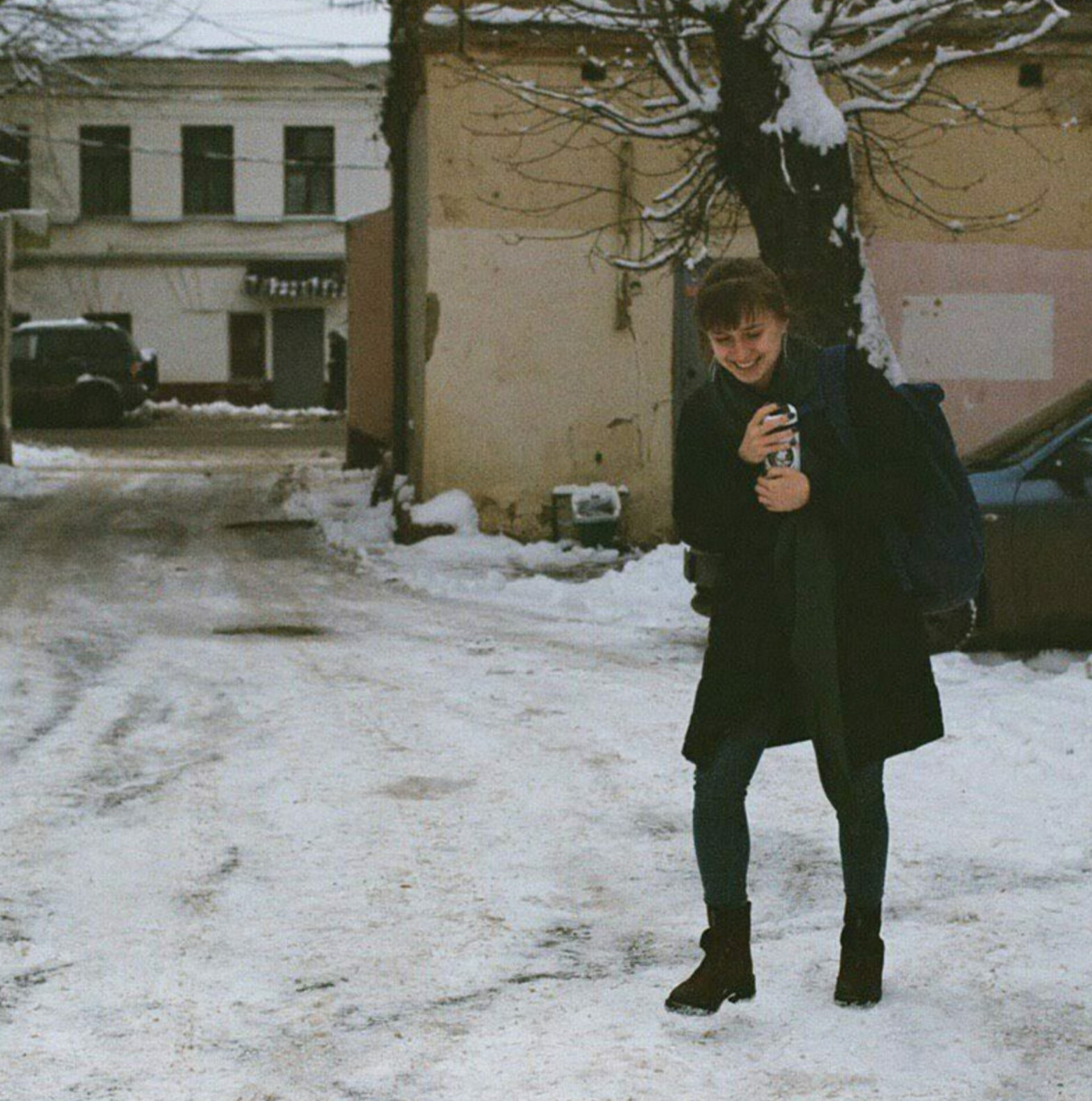
While some people move to Moscow for career opportunities, others leave it for new experiences. One way to do that is through the state program “Teacher for Russia” that was created in 2015 to ensure equal educational opportunities for children in different regions of Russia. People with a higher education undergo professional retraining, prove competence in the subject they want to teach, and then become teachers in towns or villages for two years. In total, 407 people have taken part in the program. In 2019/2020, the program works in 78 schools and six regions.
Alexandra Morgun is a software programmer by education, but she teaches a course in media at the Quantorium Technopark. She chose to live and work in Kaluga because it isn’t far from Moscow.
At first, she had some problems with food. Alexandra is a vegetarian, and there isn’t the same variety of products and restaurants in Kaluga as in Moscow. She only found one café selling falafel near her house, but it’s not very authentic. She also had to get used to long lines in hospitals, a confusing network of transport routes, and paying cash for her bus fare.
But despite all that, Alexandra says that she likes Kaluga. Although she plans to return to Moscow when her two year-contract is up, she isn’t sure that she’ll stay there.
Andrei Shchepkov is a teacher of history, social science, and geography at the school in the village of Demyan Bedny, Tambov region. He teaches 21 of the school’s 52 pupils.
“It was strange that I could go home during recess at first, but I quickly got used to that. Yes, I use an outhouse on the street, but that’s what we have at our dacha outside of Moscow. For me, the main problem was transportation. Our village is about 40 kilometers from the nearest town of Zherdevka and 60 kilometers to Borisoglebsk. Fortunately, there is Internet and BlaBlaCar,” Andrei said.
Another problem is the lack of faith in a change for the better among locals. Andrei has tried to show that every person can make a difference. He bought a whiteboard for the classroom, began to use a TV rather than a projector, and is now looking for funding so that he can equip the classroom with multifunctional furniture.
“In Moscow, I earned about 50,000 rubles, and I get about the same here: 15,000 rubles of salary, a scholarship, and money for housing. I like Moscow, but I think children should have a good education everywhere. And I like different experiences. So I might not go back,” he told The Moscow Times.
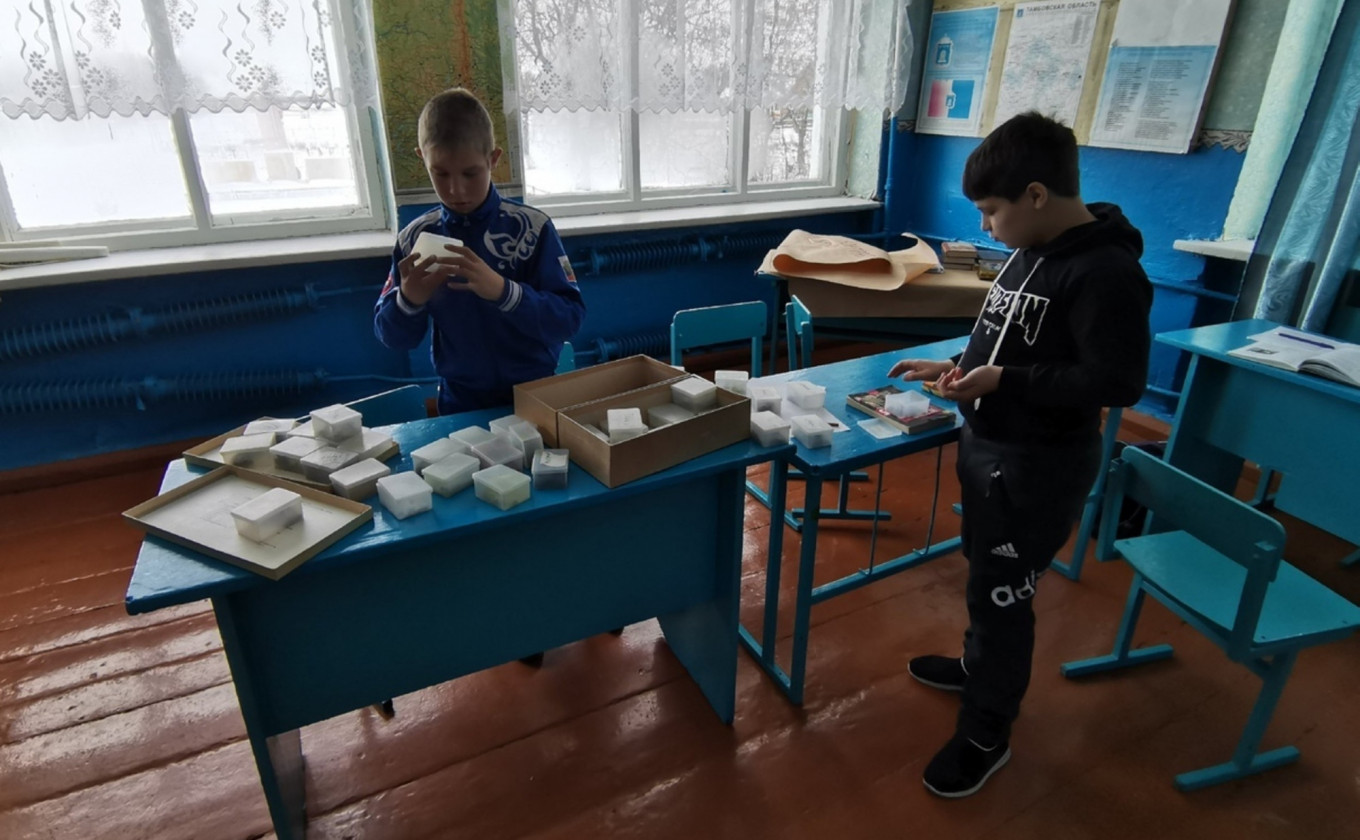
Better opportunities far from the capital
While some people move to Moscow for their careers, others think there are more opportunities for career advancement in small cities — especially because there is less competition. Maria Aedonitskaya was born in Dubna, not far from Moscow. She never considered living in Moscow because of the time wasted on commuting and the bad environmental conditions. In 2011, she realized she wasn’t really interested in her chosen field, so she dropped out of Moscow State University just before graduation and moved to Syktyvkar, the native city of her boyfriend.
There she was surprised by many things. For example, bread was sold in quarters, people went to wholesale warehouses instead of markets or supermarkets. Locals were very conservative and didn’t like to work hard. Businesses shut their doors right at closing time or even a bit earlier, although everyone complained that they didn’t have enough money.
When Maria broke up with her boyfriend, she packed everything into her car and went to look for a new place to live. She wanted a medium-sized city in the north. When she reached Veliky Novgorod, it was very hot, and she looked for a cool place to stop and rest a bit. Suddenly she saw a sign to Cherepovets. She decided to take a look, although she thought Cherepovets, which has a match factory, was one of Russia’s most polluted cities. But she was surprised by clean streets, good roads, well-repaired buildings, leafy courtyards, and picturesque lakes. The next day Maria rented an apartment, a few days later she got a job in the electricity company sales department.
“In Cherepovets, I relaxed. Two weekend days off seemed like a luxury to me. Where I used to work, I always came into the office for a couple of hours of work on Saturday or Sunday,” Maria said.
Then the company closed its office in Cherepovets. But Maria had already met the man she would marry, and the two decided to go into business together. For almost three years they have been producing fruit juice drinks.
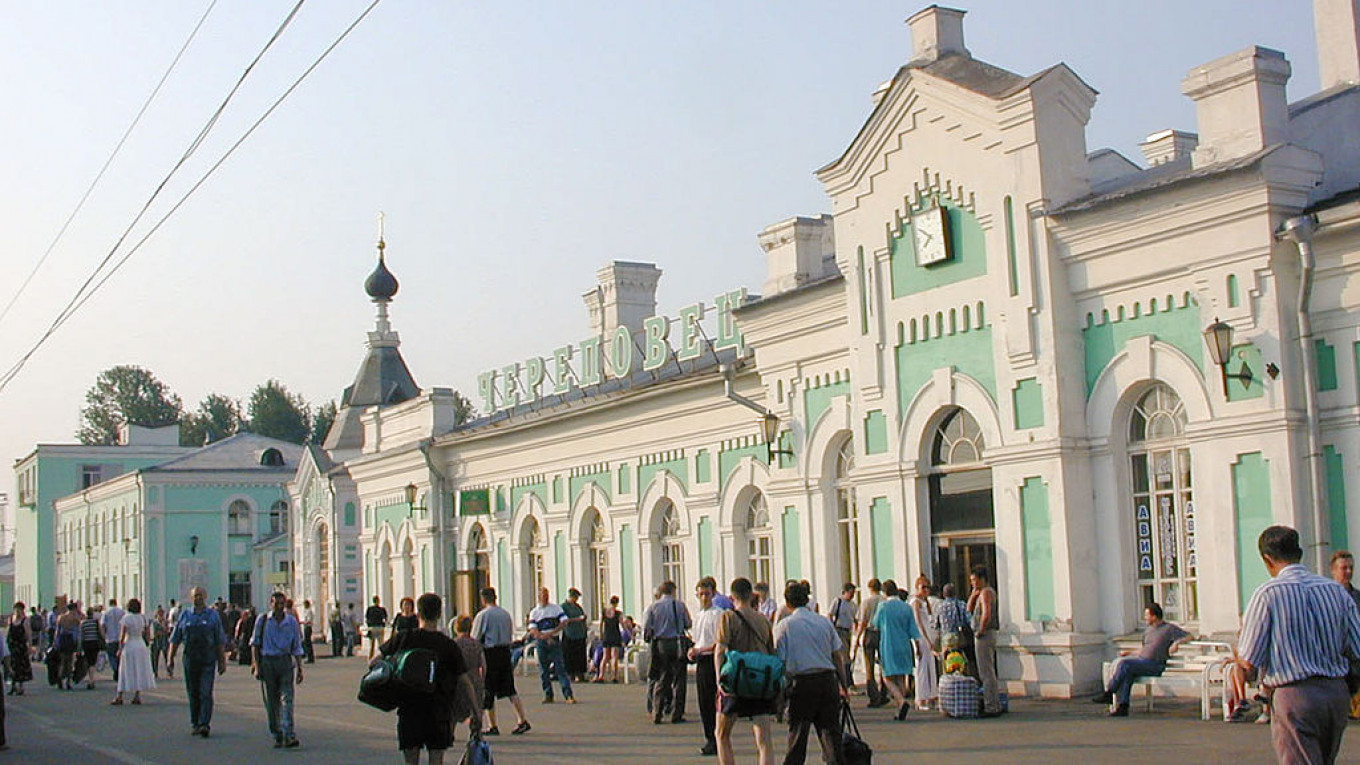
“I think it might be easier to promote a business like this in Moscow, because healthy products are more popular there than in Cherepovets. Here it’s hard to explain to people why our products are more expensive and better than others. But it’s interesting to develop healthy products in the provinces,” Maria told The Moscow Times.
In 2013, Vasily Dubeikovsky, the founder of CityBranding, gave a lecture in Volgograd on branding cities. Before the lecture, he decided to visit Uryupinsk, a place he had never been. The first thing that he saw in Uryupinsk was a horse standing next to a Mercedes at the traffic lights.
On the same visit, Dubeikovsky discussed his services with the mayor. Dubeikovsky realized that to create a brand for a town, he needed some experience living in one. Despite his love for Moscow, he and his wife moved from Moscow to Uryupinsk, which is a jokey synonym for “hick town” in Russian.
Of course, life isn’t like in Moscow, but they have been able to innovate. Thanks to the culture department of the city administration, the city got a movie theater. Vasily’s wife, Yekaterina, was an educational specialist, and so she opened the town’s first Montessori school. They buy things online and usually go to doctors in Saratov or Tambov.
“We never said that we’d live in Uryupinsk all our lives. We love Moscow. We go there often, but we aren’t afraid of moving somewhere else. Next time we’ll try a different kind of city,” Vasily said.
